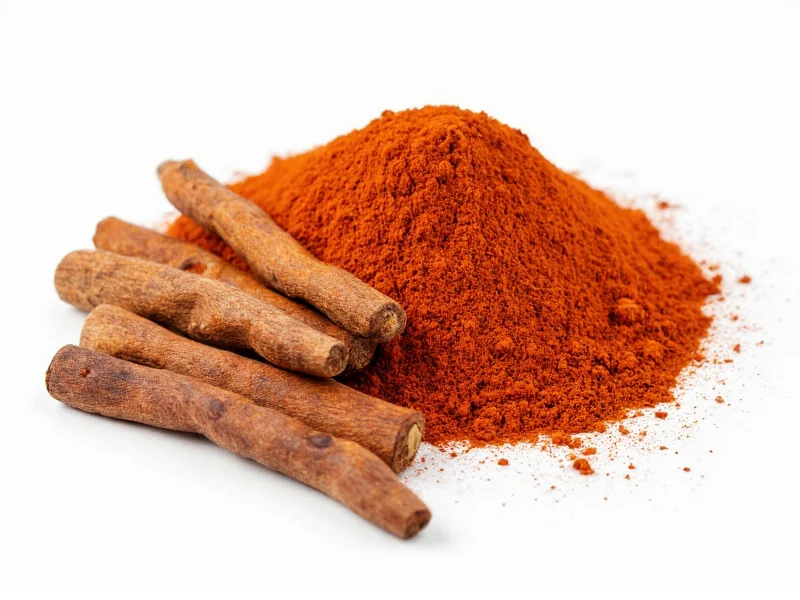Chinese five spice powder is a fundamental seasoning in Asian cuisine, combining sweet, savory, and aromatic elements. When you're mid-recipe and realize you've run out, knowing reliable substitutes prevents cooking disasters. This guide provides practical alternatives backed by flavor chemistry principles, not just random suggestions.
Understanding Five Spice Composition
Authentic Chinese five spice contains equal parts of:
- Star anise (licorice-like sweetness)
- Cinnamon (warm sweetness)
- Cloves (pungent intensity)
- Fennel seeds (mild licorice note)
- Szechuan peppercorns (tingling heat)
This unique combination creates a balanced flavor profile that enhances meats, particularly duck and pork, without overpowering other ingredients. When seeking a five spice powder replacement, the goal is matching this balance rather than exact replication.
Top Five Spice Substitutes Compared
| Substitute | Ratio | Best For | Flavor Difference |
|---|---|---|---|
| Homemade Blend | 1:1:1:1:1 (cinnamon:cloves:fennel:star anise:Szechuan pepper) | All-purpose use | Most authentic replacement |
| Garam Masala | 1:1 | Roasted meats, stews | More warming spices, less licorice |
| Allspice | 1:0.75 | Marinades, braises | Simpler profile, missing complexity |
| Cinnamon + Cloves | 2:1 | Sweet applications | Lacks savory elements |
| Four Spice Powder | 1:1 | Traditional Chinese dishes | Milder, missing Szechuan pepper |
Detailed Substitute Recipes
Homemade Five Spice Alternative
When you have most components but lack one element, this adjustable recipe saves the day. For a star anise substitute, increase fennel seeds by 50%. Without Szechuan peppercorns, add a pinch of white pepper for heat. Toast whole spices before grinding for maximum flavor—this easy five spice replacement beats store-bought versions.
Garam Masala Conversion
This Indian spice blend works surprisingly well as a five spice alternative for duck recipes. Use equal amounts, but reduce additional salt since garam masala often contains salt. It shines in roasted applications but lacks the distinctive licorice notes—add 1/4 teaspoon fennel seeds per tablespoon of garam masala for closer approximation.
Allspice Shortcut
When time is critical, allspice provides the closest single-spice substitute. Use 3/4 teaspoon allspice for every teaspoon of five spice required. This simple five spice alternative works best in liquid-based recipes like braises where other flavors can compensate for missing dimensions. Avoid using in dry rubs where the flavor profile becomes too one-dimensional.
Application-Specific Recommendations
Not all substitutes work equally across dishes. Understanding which replacement suits your specific recipe prevents flavor imbalances:
- For Peking Duck: Use homemade blend with extra star anise (2 parts) to replicate traditional preparation
- For Red Cooked Pork: Garam masala provides sufficient warmth without overwhelming
- For Five Spice Noodles: Allspice works when combined with 1/2 teaspoon sesame oil per tablespoon used
- For Desserts: Cinnamon-clove blend (2:1) creates appropriate warmth without savory elements
Storage and Freshness Tips
Homemade substitutes lose potency faster than commercial blends. Store in airtight containers away from light and heat. Properly stored, they maintain peak flavor for 3-4 months. For longer storage, freeze in ice cube trays with neutral oil—this five spice replacement technique preserves volatile compounds better than dry storage. Always check aroma before use; stale spices smell dusty rather than vibrant.
Creating Your Own Five Spice Blend
If you frequently cook Asian cuisine, making your own blend ensures freshness and customization. Toast 2 tablespoons each of Szechuan peppercorns, fennel seeds, and cloves with 4 cinnamon sticks and 5 star anise pods over medium heat until fragrant (about 2 minutes). Cool completely before grinding. This homemade five spice substitute costs less than premium store versions and lets you adjust ratios to personal preference—reduce cloves for milder flavor or increase star anise for stronger licorice notes.
Common Questions About Five Spice Substitutes
Can I substitute five spice powder with pumpkin pie spice?
Pumpkin pie spice works in a pinch for sweet applications but lacks the savory complexity of five spice. Use a 1:0.75 ratio and add 1/8 teaspoon black pepper per teaspoon to approximate the tingling sensation of Szechuan peppercorns. This substitute works best in baked goods but fails in savory meat dishes where the ginger and nutmeg dominate unpleasantly.
What's the best substitute for five spice in marinades?
Allspice combined with soy sauce creates the most effective five spice substitute for marinades. Use 3/4 teaspoon allspice per teaspoon required, plus 1 teaspoon soy sauce per tablespoon of spice. The soy sauce compensates for missing umami elements while allspice provides the foundational warmth. Let the marinade sit for at least 2 hours to allow flavors to meld properly.
How do I adjust recipes when substituting five spice?
When using substitutes, reduce additional salt by 25% since many alternatives contain salt. For dry rubs, increase oil content by 10% to help distribute flavors evenly. In liquid-based recipes, add substitutes early in cooking to allow flavors to integrate. Always taste after 15 minutes of cooking and adjust—most five spice powder replacement ratios require minor tweaks based on your specific ingredients.
Can I use four spice powder as a substitute?
Four spice powder (missing Szechuan peppercorns) works as a direct 1:1 substitute in most recipes. To compensate for the missing element, add 1/16 teaspoon white pepper per teaspoon used. This chinese five spice substitute without star anise variation maintains traditional flavor balance while accommodating ingredient limitations. It's particularly effective in slow-cooked dishes where the pepper's heat mellow significantly.
How much substitute should I use compared to original recipe?
Most substitutes require 75-90% of the original five spice amount due to differing potency. Start with 3/4 the recommended amount, then adjust after 10 minutes of cooking. Commercial substitutes often contain salt and fillers, so check labels—unsalted blends need 10% more than salted versions. This five spice powder replacement ratio guideline prevents overpowering your dish while maintaining intended flavor balance.











 浙公网安备
33010002000092号
浙公网安备
33010002000092号 浙B2-20120091-4
浙B2-20120091-4